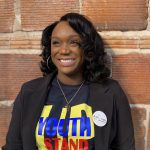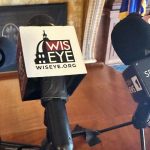Why we celebrate
“The Declaration of rights is like all other human blessings alloyed with some inconvenience…But the good in this instance vastly outweighs the evil.” – Thomas Jefferson
Today we celebrate Independence Day, the day we stood up to George III and said ‘Enough– we want to govern ourselves and live as an independent nation!’
Among the documents that announced our independence was The Constitution. Thirteen years later our founding fathers enumerated 10 basic rights shared by citizens, known as The Bill of Rights. The First Amendment is probably the most famous (unless you belong to the NRA, then you’re more familiar with the Second Amendment) and it contains the basic tenets that make the United States of America what it is.
“Congress shall make no law respecting an establishment of religion, or prohibiting the free exercise thereof; or abridging the freedom of speech, or of the press; or the right of the people peaceably to assemble, and to petition the Government for a redress of grievances.”
Our founding fathers knew that to be the nation of their vision they had to create a country like no other. They knew that government control over ideas, worship, gatherings and the governed would simply replace the tyranny of the king with a different brand of tyranny.
They decided this new nation could not impose a state religion on its people or regulate the practice of religion. No more state church, as in England, and no persecution for belief systems out of the mainstream.
A nation free of tyranny needs to be open; where people can speak their minds, keep track of their government and even disagree with it. This would be a nation that values differences of opinion, values the press to be a set of eyes on the government and allows its citizens to gather together to share ideological and philosophical opinions with their leaders.
The press is a check on tyranny, so the work of the people is not done in darkness. While citizens should attend to the work of the government, the realities of living make that difficult. With a free press, free from constraints on what to report, people can know what is happening with their tax dollars. This freedom also extends to all methods of disseminating information – books, recordings, movies.
After suffering under the occupation of the king’s army which restricted gatherings, the founding fathers ensured the peaceable assembly of the people. This assembly allowed the people to gather to express opinions about their government and has led to some of the biggest changes in our nation – the abolitionists, the suffragettes who ushered in a woman’s right to vote and the civil rights marches of the 1950s and 60s, culminating with Dr. Martin Luther King Jr.’s “I Have a Dream” speech.
And this new nation would need to have a process where the citizens could challenge and direct the officials they put in place to govern them. This right to petition allows citizens to directly challenge or influence politicians through non-violent means.
Yes, that is correct, the founding fathers established the profession of the lobbyist!
Without these rights, our nation would be repressed, its government shrouded in secrecy and running loose on the will of the elected. Instead, we can voice our opinions, join with others to express those opinions, obtain information about our government, lobby our government to change its practices and worship or not worship who or what we want.
Without these rights our nation would resemble Iran, where free speech and assembly is allowed until the Mullahs tire of it; or China, where religious groups are regularly suppressed and tortured; or Cuba, where the press regurgitates what is provided to them by the ruling party.
Some will say the First Amendment has been eroded over the years as certain words are deemed unacceptable, viewpoints are vilified, press outlets closed, assemblies stopped and religious practices brought before the courts. These complaints are true, but none have been caused by government decree.
Instead, societal changes have caused words and ideas to fall out of favor, economic and technological realities have forced the closure of newspapers and magazines and the belief of some that freedom from religion means no signs of any religion are allowed have led to restrictions.
It is only when the government legislates these things across the board that the real infringement on our first amendment rights will be complete.
Until then, we must be vigilant in the defense of our rights and the rights of our neighbors. To remain vigilant we must know what are rights are. To find out more about your First Amendment click here.























